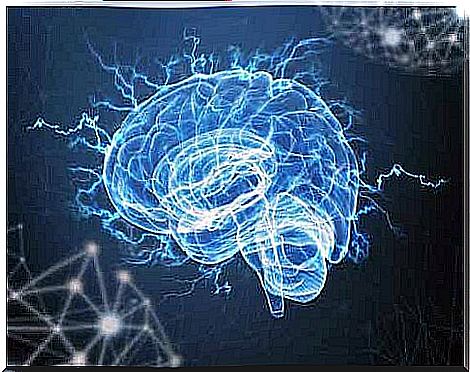The Connection Between Patience And Serotonin

People say that patience is a virtue. However, science says that it is more than a virtue, and that there is a connection between patience and serotonin. It is a neurological competence that everyone should develop. Think about it for a moment, how different would your life be if you were more patient? Would you be better able to withstand setbacks and wait for the future without feeling nervous or frustrated?
The first thing you want to achieve is mental well-being. When you want everything at once, it makes your mind more anxious. The truth is that people in today’s society are always in a hurry, to the point where we have become the opposite of patience. Most are victims of haste. There does not seem to be enough time, which makes us want to have control over everything all the time.
In the 1970s, Heinz ketchup was still sold in glass bottles. One day, the leaders of this famous brand discovered that customers felt frustrated when they used this bottle. The glass forced them to turn the product and wait for the sauce to reach the cap. Impatience bothered them, and as a result, sales went down.
Initially, this forced them to create an innovative advertising campaign. They created the slogan “It’s slow good” to convince them that good things require patience. It is safe to say that it was a great success.
Those who can not wait for something feel frustrated on a constant basis. In reality, nothing can be more enriching than practicing patience and understanding that waiting is well worth it sometimes.

Patience and serotonin: How are they related?
We all want to be patient every day and in any case. However, the brain is not prepared for this competition. Basically, two basic mechanisms control the brain. First, to receive immediate reinforcement and seek joy, rewards and well-being. For example, no one likes to wait very long for food in a restaurant.
However, there is another fact to consider. The brain responds with alarm and suffering when the body is controlled by uncertainty. If things do not go as planned, you are more than likely to start suffering, start to feel anxious and will not be able to stop and worry. Although no one likes to wait, sooner or later we realize that life is about doing just that.
Patience is a protective net that can allow you to go through the complexities of everyday life without falling into the trap of frustration and discomfort. Interestingly, science discovered certain mechanisms that make it possible to increase this virtue. Let’s take a look.
Patience and serotonin: The role serotonin plays for patience
Katsuhiko Miyazaki and Kayoko Miyazaki from Okinawa University of Science and Technology in Japan conducted a study published in the journal Science Advances . They addressed the relationship between patience and serotonin and how it affects a person’s well-being. Let’s discover some facts.
- In order to regulate emotions, it is important to learn and suppress the urge for satisfaction. This also serves to improve behavior and achieve long-term benefits. Impatience is the source of anxiety and the root of mental discomfort.
- Until now, no one knew about the mechanisms that differentiate patient people from those who were impulsive.
- The study conducted at Okinawa University of Science and Technology found that serotonin is the neurotransmitter that modulates patience. The researchers were able to prove this in mice.
- Serotonin is the multifunctional neurotransmitter that is responsible for regulating many processes, from mood and sleep and sleep cycle to appetite, among others. Now we know that it is also the key to favoring impulse control and patience.
- Several researchers are studying this mechanism to learn how it affects different areas of the brain.

Patience is not innate, it is trained
Saint Augustine once said that “Patience is the companion of wisdom” . However, one aspect that this study emphasized is that this competence is a result of learning. Promoting patience little by little can have a very positive effect on your quality of life.
Many people seek help because they do not like the world they are surrounded by. They feel frustrated and just want to get away. Undoubtedly, these individuals are drowning in a pool of impatience. Instead of being calm and working every day to change things in the future, they are angry because things are not the way they want them to be right now.
In the face of this situation, you may be wondering how to train yourself to be more patient. How can your brain release more serotonin? The following sentences may help you to reflect on this:
- Patience is the ability to be calm in the face of adversity.
- To develop it optimally and effectively, you must learn to tolerate negative emotions. You must accept, understand and regulate your inner emotional universe.
- Self-control is the antidote to impulsivity.
- Rethink your way of thinking about everything that makes you lose patience.
- Remember your purpose. When you know that something good will come your way in the future, you will be more inspired to be patient.
To conclude, in a world defined by uncertainty and unforeseen changes , being patient is absolutely necessary. Train your brain to stay calm even on the most difficult days.









